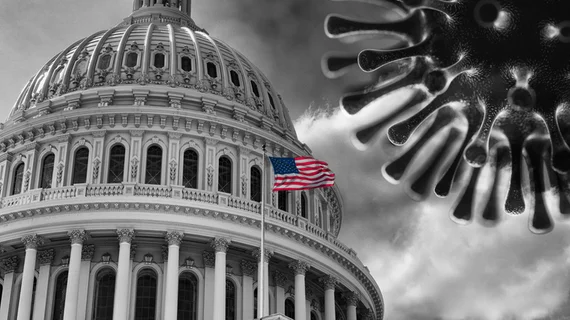HHS earmarks $103M to curtail burnout, alleviate healthcare workforce shortages
The Department of Health and Human Services is committing more than $100 million to combat burnout among healthcare workers and alleviate the field’s growing workforce shortages.
The $103 million in funds are part of President Biden’s American Rescue Plan and will be doled out to 45 recipients. Money will go toward evidence-backed programs, practices and training, focusing specifically on providers in rural and underserved settings, HHS announced Thursday.
As hospitals and health systems continue to deal with an influx of COVID-19 patients, this funding will be crucial to promote wellness, retain workers and reduce burnout, the administration said.
“Now more than ever, it is critical to support the well-being of our healthcare workforce, who are working every day to protect each of us,” said HRSA Administrator Carole Johnson. “Today’s awards will provide new tools to help support our health professionals’ resilience as they continue to face the stress and challenges of responding to COVID-19 and other healthcare needs and provide high quality care.”
Three programs with be responsible for the grants. Promoting Resilience and Mental Health Among Health Professional Workforce will award $28.6 million to 10 healthcare organizations using evidence-based practices to promote mental health among its employees.
The Health and Public Safety Workforce Resilience Training Program will hand out $68.2 million to 34 recipients working to reduce burnout across medical students, residents, firefighters police officers and other public safety officers.
George Washington University will receive the remaining $6 million to train and assist organizations that receive grants.
“This funding reflects the Biden-Harris Administration’s commitment to ensuring we have enough critical frontline workers by supporting healthcare providers now and beyond as they face burnout and mental health challenges,” HHS Secretary Xavier Becerra said in a statement. “We will continue to promote the well-being of those who have made so many sacrifices to keep others well.”

